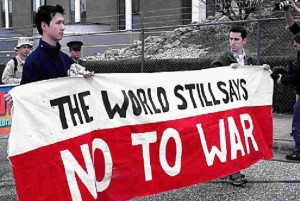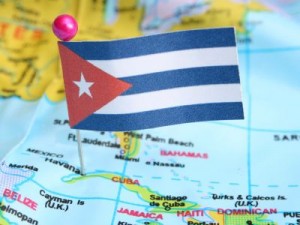 By John Bachtell, via People’s World
By John Bachtell, via People’s World
In a potentially important development, exiled members of the former People’s Democratic Party of Afghanistan are returning to the country to re-found the organization. They plan to hold a Congress in Kabul later this year and rename the organization the Democratic Party of Afghanistan.
The PDPA was the ruling party that led the country on a path of socialism before being ousted from power in 1992 by the U.S. government-backed Taliban. Thousands of PDPA members were slaughtered or driven into exile where they have functioned over the years as scattered groups.
Exiled members met recently in Germany to unite their ranks and agree on an approach to reestablishing a legal political party on Afghanistan soil.
“The main goal is to return to Afghanistan and bring a situation of peace and stability in the region,” said Dr. Zalmay Gulzad, professor of Social Sciences at Harold Washington Community College in Chicago. Gulzad was born in Afghanistan and came to the U.S. as a student in 1971 and stayed. “Once peace is achieved the movement will evolve into different stages.”
In an interview with the People’s World, Gulzad said the new DPA would join the growing democratic movement in Afghanistan that includes a strong women’s movement, intellectuals, students and even some members of the Parliament.
Media reports have noted nostalgia for the PDPA governing years. Many people say times were better then; there was more stability and security. The government built a lot of schools, provided education and health care, according to Gulzad. Many feel “that period was better than during the repression of the Mujahideen and today’s American bombs.”
“It’s a different situation,” he continued. “The conditions are good for unity to bring peace to Afghanistan. Even before Sept. 11, 2001, members of the PDPA returned and became members of Parliament and they’ve been working within the function of government.”
Gulzad termed the Karzai government a corrupt “puppet regime” and said U.S. Ambassador Karl Eikenberry is really running the country.
Gulzad said the main threat to the stability of the Afghan government comes from a resurgent Taliban. While the people don’t want U.S. troops in the country, they fear a return of the Taliban to power, he said.
“The people will not accept a puppet regime. They will work with the Karzai government because of the situation with the Taliban. Once peace comes, people will bring a genuine people’s government,” he said.
The Taliban have their roots in the U.S. drive to destabilize the Soviet Union during the Carter administration. Known then as “freedom fighters” (Mujahideen) they were religious extremists assembled by the CIA to overthrow the government and kill Communists, democrats and Soviet “infidels.” They were recruited from predominantly Muslim countries when they couldn’t be found in Afghanistan.
Because they were trained in Pakistan, they were renamed Taliban, which means “religious students.” These same elements, trained by the CIA, were responsible for the attacks on the World Trade Center in September 11, 2001, including Osama Bin Laden.
After the attacks, said Gulzad, they were suddenly renamed “terrorists.” Instead of going into Saudi Arabia where most were from, or Pakistan where they were trained, the Bush administration invaded Afghanistan. Gulzad says the reason is the strategic geopolitical importance of Afghanistan, its proximity to energy resources and Iran, Russian, China and the Persian Gulf.
“If the Taliban retook power they would be a very regressive force. The Afghan people wouldn’t accept it. Remember there was a civil war – north versus south and within the south they were fighting the Taliban. And the region’s countries would get involved in arming various factions – Pakistan, Iran, Russia and China.”
The main source of support for the Taliban is still the military in Pakistan. Gulzad said this is related to Pakistan’s desire for additional territory in its fight against India and for gaining hold of Kashmir. They want a weak government in Afghanistan and to rid it of Indian influence, which has invested heavily in Afghani infrastructure, education and hospitals.
Gulzad said during the arming of the “freedom fighters” against the Soviet Union everyone denied Pakistan was helping. And today everyone knows the Pakistani military and Inter-Service Intelligence are supporting and arming the Taliban, but it’s still denied.
Today, there are now two separate Taliban, one in Afghanistan and one in Pakistan. The Pakistan Taliban is threatening to overthrow the Pakistani secular state. Gulzad said most of the recent terrorist attacks in other parts of the world have emanated from Pakistan including the deadly attack on Mumbai.
All the Obama administration needs to do is put pressure on Pakistan to stop arming the Afghani Taliban and protecting their sanctuaries from which they are launching attacks into Afghanistan, and the problem would be solved, said Gulzad.
“We are losing many Afghan and U.S. troops right now for no reason,” he said. “Pakistan could arrest Osama Bin Laden and other al-Qaeda and terrorist leaders if it wanted to. Many believe the U.S. and Pakistan want to keep it going for their own purposes.”
“The problem reflects the split in (U.S.) ruling circles, in the U.S. military and the Obama administration. Sections of the military and intelligence community see the importance of a long-term presence in Afghanistan for access to energy resources and geo-political purposes,” he said.
Recently, Defense Secretary Gates, Secretary of State Clinton and General McCrytsal let it be known they oppose President Obama’s suggestion of negotiation with the Taliban, who have suffered military defeats recently.
“The institutions of U.S. imperialism are highly developed. Pres. Obama can’t change it alone. He has very good intentions but the people around him – e.g. the Pentagon, CIA, they are not really allowing him to move from that policy,” said Gulzad
The American people have to demand a change in foreign policy to end U.S. involvement and close down the foreign military bases. he said.
“So long as the imperialist mentality exists – hostility to Iran, China, etc. the U.S. is in a good spot,” he said. Which helps explain why they are rejecting offers from Russia and China to help, he said.
“Russia wanted to help Afghanistan, but were denied by the US. Russia has a long history with Afghanistan. Most of the highways and infrastructure were built by the Soviets. They have all the blueprints.”
Gulzad said international help could come by training and educating personal to rebuild the country. They could be sent to Tajikistan and Iran, which both speak the same language and have the same culture as many Afghanis.
“It would require the U.S. to step back and allow the Afghan government to have its own sovereign relations. The American people have a big responsibility. Look, our government is broke and people are suffering. Yet the US has military bases all over the world and it costs a lot to maintain this. The mentality of imperialism is finished. People around the world don’t accept it any longer,” said Gulzad.












